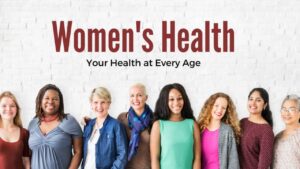Reproductive Healthcare Part I By Liz Jordan
AAUW Position on Reproductive Healthcare: AAUW supports choice in determining one’s reproductive life and increased access to health care and family planning services.
On Saturday, Oct. 14, in a Joint Branch meeting, the Sacramento and CHAR branches presented a program about the current state of reproductive healthcare in the United States. The program presenters did a dramatic reading of several pre-Roe (1973) stories from The Abortion Chronicles, written by Lynn Wenzel of Nevada County. Integrated into the second half of the program, the facts/informational part, were more stories of women’s experiences since June 2022, when the Dobbs decision was handed down.
a program about the current state of reproductive healthcare in the United States. The program presenters did a dramatic reading of several pre-Roe (1973) stories from The Abortion Chronicles, written by Lynn Wenzel of Nevada County. Integrated into the second half of the program, the facts/informational part, were more stories of women’s experiences since June 2022, when the Dobbs decision was handed down.
We learned many facts about what is happening all over our country. Some important points that were made are:
- California is one of 4 only states labeled Very Protective for reproductive healthcare protections on the Guttmacher Institute interactive map. We are one of 14 states are considered Protective; on the other hand, 36 states are considered Restrictive to Most Restrictive because they limit or ban abortion. https://www.guttmacher.org
- Healthcare records, nor providers of reproductive care, are safe from prosecutions, even in states where many women travel to get reproductive care. Nineteen states (19) have challenged a Health and Human Services Department order protecting healthcare records of people who travel to another state for healthcare services; they cite that these records might evidence of a crime in the patient’s home state.
- Reproductive Healthcare providers are leaving many states to practice where their actions are not considered felonious until proven innocent. For example, according to the New York Times, 75% of Oklahoma’s OBGYNs are either leaving or considering leaving the state.
- A growing number of U S counties are considered Maternity Deserts where there is limited or no access to birthing hospitals, birth centers offering obstetric care or obstetric providers. For example, in Texas 53% of counties are considered Maternity Deserts! Where You Live Matters: Maternity Care Deserts and the Crisis of Access and Equity | March of Dimes
- Furthermore, nearly 60% of medical students are avoiding practice in states with abortion restrictions.
- The Gender Equity Policy Institute reports that women, living in states with abortion bans, are three times more likely to die during pregnancy or childbirth; their babies are 30% more likely to die in the first month of life.
This movement, to control reproductive care, does not plan to stop at the status quo.
So, what can we do, here in our Protective State with only a few Maternity Deserts? One idea expressed at the meeting is a clear gender protection in the U S Constitution. If we had a gender-equity protection, as a 28th Amendment, the Supreme Court could be less-likely to make a decision like Dobbs.
Next month, we will answer what happened to the Equal Rights Amendment? And what can I do about it?
Click <here> to access Paola Mendez’s report on legislation that went through the legislature this year that deals with issues around healthcare.
Printable Newsletter Articles
Click here for Printable Newsletter Articles.
